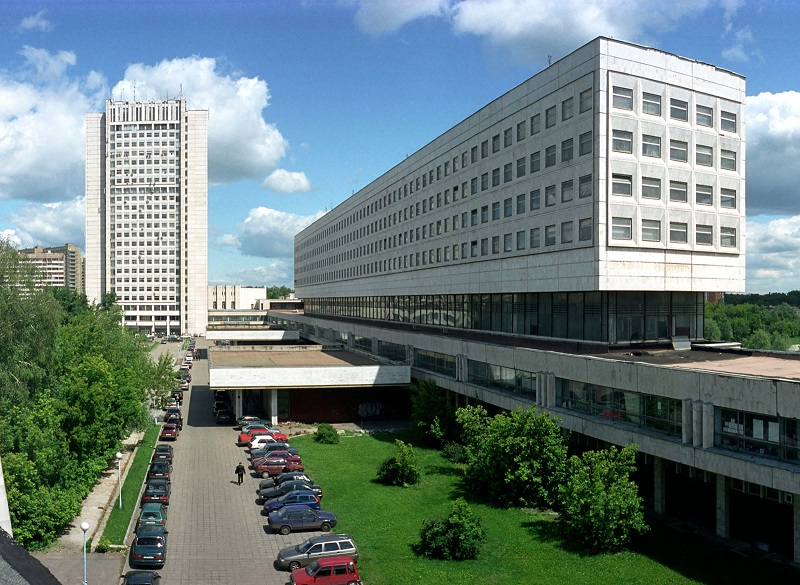BREEAM in Russia
In July 2017, BRE announced the launch of a new partnership with the National Research Moscow State University of Civil Engineering (MGSU) and the Russian Green Building Council (RuGBC).
The partnership is aimed at driving sustainable best practice through knowledge share and the development of BREEAM to enhance competitiveness of projects in Russia and improvement of the quality of residential and commercial real estate for end users.
The Russian market presents great opportunities and potential for the implementation of modern technologies. Increasing competition has the effect of encouraging construction market participants to explore new competitive advantages and opportunities for cost optimisation, in particularly around building operations.
BRE, MGSU and RuGBC are keen to ensure that the Russian construction market takes more advantage of global growth patterns, by creating an attractive environment for the introduction of modern standards which could drive the development and success of the Russian construction market.
“The Russian sustainable construction market is ready to move to its next stage of development,” commented Guy Eames, Chair of the RuGBC. “Developers, investors and state bodies have accepted sustainability as a competitive advantage and there is a desire to produce more efficient buildings. BRE, MGSU and RuGBC recognise this and are keen to ensure that the tools and support are available.”
At the heart of the bridge between the new regulations that MGSU are preparing and sharing international best practices is BREEAM. BREEAM is used in more than 70 countries and has an 80% market share of environmental building certification in Europe.
BREEAM is present on the Russian construction market. There are currently 52 licensed BREEAM experts operating in Russia and over 150 registered assessments, with a total floor area of over 5,000,000 m².
Russia offers great potential for BREEAM development, however with the majority of current assessors, developers, constructors and architects having English as a second language, a need to transit towards Russian language has been identified. As part of the agreement, BRE will therefore be providing Russia with a translated version of BREEAM International to support greater understanding of how the scheme operates and ensure greater integration of BREEAM with local regulations.
Further support will be provided by MGSU which will be offering support to further develop the BREEAM assessor network at a local level with RuGBC acting as a contact point for industry players.
“Cooperation of professionals from different countries is essential for establishing the principles of sustainable development, enhancing environmental compatibility of construction and improving liveability. This is particularly relevant for major metropolitan areas such as Moscow which faces large scale renovation initiatives”, commented Valery Ivanovich Telichenko, president of MGSU, Deputy of Moscow City Council.
This project will provide an opportunity to foster greater sharing and partnership between UK and Russia on how to drive sustainable construction, with much that both countries can learn from each other where research institutes play the key role in the process.
“A clear global picture is emerging of progressive and future-minded science based research institutes, which advise both the Government and private sectors, creating environmental and industry standards,” commented Martin Townsend, Sustainability Director, BRE Global. “We are confident in our partnership with the MGSU and RuGBC to deliver new skills to release the potential of the Russian market and enhance the quality of life and work of the Russian consumers.”
The joint initiative of MGSU, RuGBC and BRE is one more step for sustainable development in Russia, creating a more attractive environment for the local development of sustainable construction practices and enhancing the quality of life of the Russian population.
This article was originally published here by BRE Buzz on 7 July 2017. It was written by Simon Guy.
--BRE Buzz
[edit] Find out more
[edit] Related articles on Designing Buildings Wiki
Featured articles and news
A case study and a warning to would-be developers
Creating four dwellings... after half a century of doing this job, why, oh why, is it so difficult?
Reform of the fire engineering profession
Fire Engineers Advisory Panel: Authoritative Statement, reactions and next steps.
Restoration and renewal of the Palace of Westminster
A complex project of cultural significance from full decant to EMI, opportunities and a potential a way forward.
Apprenticeships and the responsibility we share
Perspectives from the CIOB President as National Apprentice Week comes to a close.
The first line of defence against rain, wind and snow.
Building Safety recap January, 2026
What we missed at the end of last year, and at the start of this...
National Apprenticeship Week 2026, 9-15 Feb
Shining a light on the positive impacts for businesses, their apprentices and the wider economy alike.
Applications and benefits of acoustic flooring
From commercial to retail.
From solid to sprung and ribbed to raised.
Strengthening industry collaboration in Hong Kong
Hong Kong Institute of Construction and The Chartered Institute of Building sign Memorandum of Understanding.
A detailed description from the experts at Cornish Lime.
IHBC planning for growth with corporate plan development
Grow with the Institute by volunteering and CP25 consultation.
Connecting ambition and action for designers and specifiers.
Electrical skills gap deepens as apprenticeship starts fall despite surging demand says ECA.
Built environment bodies deepen joint action on EDI
B.E.Inclusive initiative agree next phase of joint equity, diversity and inclusion (EDI) action plan.
Recognising culture as key to sustainable economic growth
Creative UK Provocation paper: Culture as Growth Infrastructure.























